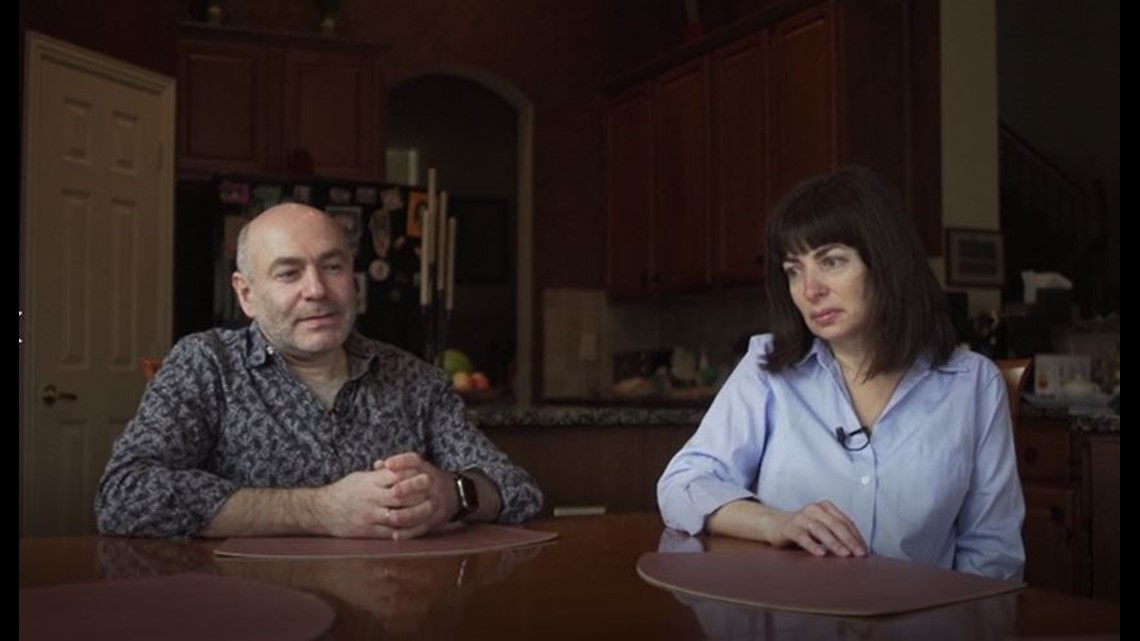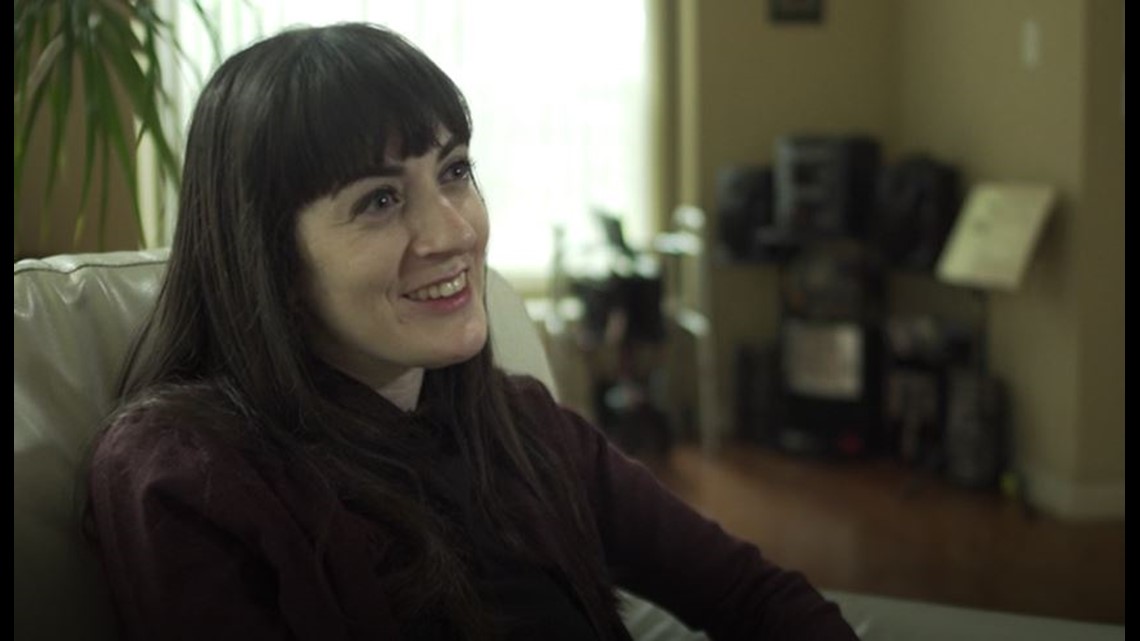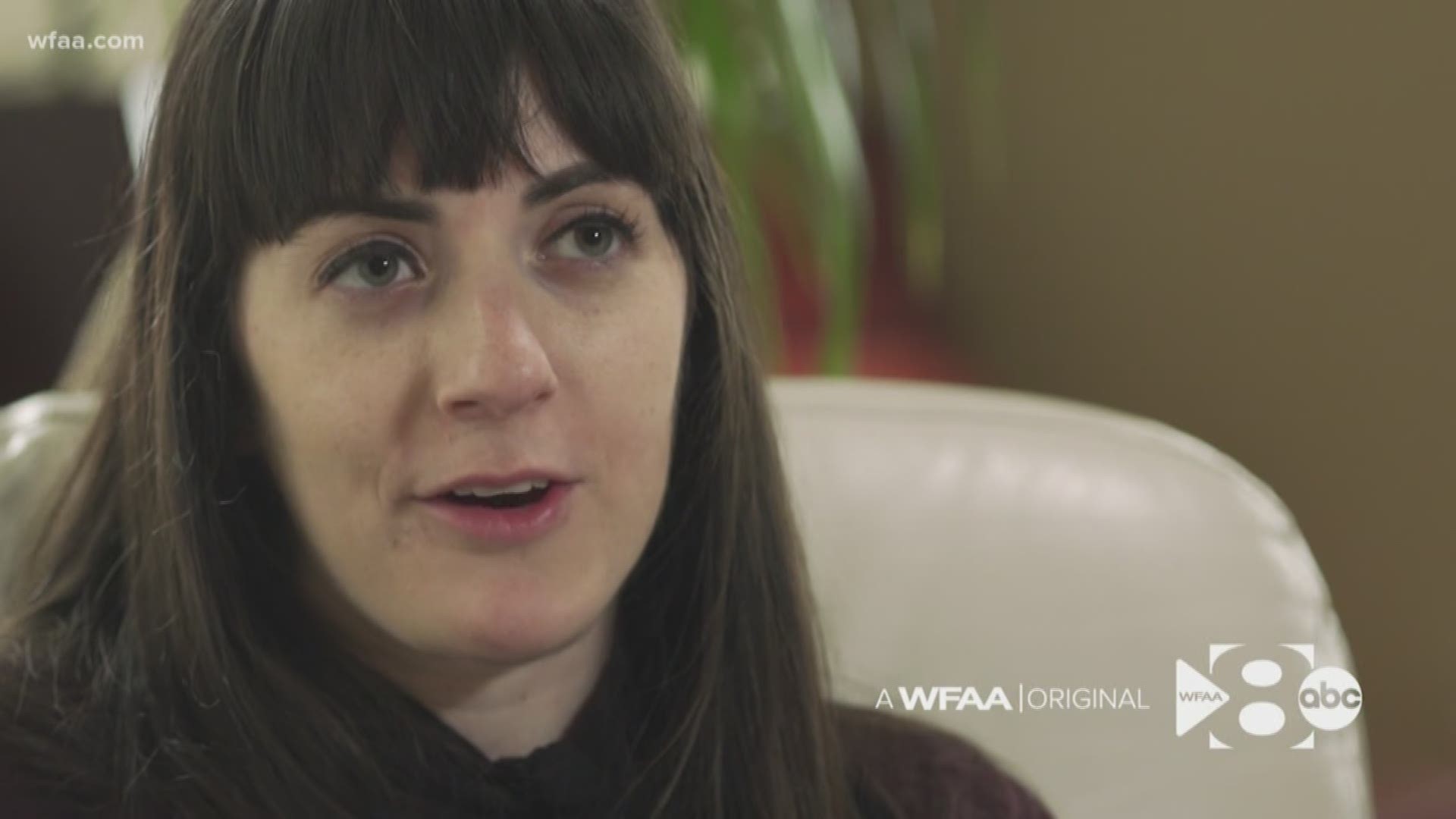FRISCO, Texas — If Sonya Bandouil is anywhere nearby, the piano inside her parents' home is rarely silent.
“Piano was her peace of mind,” said Alex Pankiewicz, Sonya's longtime boyfriend. "When she’d have a rough day at work, a lot of studying or something, I’d hear the piano from 9 or 10 p.m. to 1, 2 or 3 in the morning.”
“That’s kind of her safe space,” Pankiewicz added.
In November, Bandouil and Pankiewicz were on a weekend getaway to Boston from New York City, where they had recently moved. Living in New York was always Bandouil’s dream, and it had finally come true.
As they walked along a historic Boston street, the unthinkable happened: A portion of a building collapsed. Tons of concrete rained down on top of Sonya, crushing her body — and her dream.
“For about three or three and a half hours, until I was in the ER and the doctor came in and said she’s alive, I thought she passed away,” Pankiewicz said.
Bandouil’s mother, Yelena Lutsker, remembers the phone call she got from Pankiewicz. She almost didn’t answer because the number wasn’t familiar.
“Something happened in my heart. I knew Sonya was in Boston and I know 617 is a Boston area code, so I answered the phone,” she said.
She caught the first flight to Boston, where grim news greeted her.
Bones all over Bandouil’s body were broken. Her hands might have taken the brunt of it all.
“One of the scariest moments of my life was talking to one of the doctors and he told me that he might have to amputate Sonya’s finger,” Lutsker said. “That second I thought – this is like the end of my life.”
Bandouil began playing piano when she was 5 years old, and she never stopped.
Her father, Dmitry Bandouil, said his daughter is naturally gifted, but that she worked hard to hone her craft.
Practice never seemed like a chore for her. “She did it not because she had to, but because she enjoyed it,” he said.


Bandouil played through high school in Frisco and majored in piano at the University of Houston. She began landing big gigs and teaching lessons five nights a week soon after moving to New York City, where she also enrolled in graduate school.
Memories of Bandouil’s years of practicing and performing flooded Lutsker’s mind as doctors told her about the amputation. Lutsker began pleading with the surgeons.
“I was like, ‘No way. No, no, no. You can’t do it. Please save it, do whatever you have to do, just save it,’” Lutsker recalled, with tears still filling her eyes.
“I realized at some point that we would not be able to listen to piano in our house again.”
Amputating Bandouil’s mangled middle finger sounded like a terrible option, but Lutsker would later find out it was the best option. For a time, surgeons thought they might be forced to amputate her daughter's entire hand.
More than 20 bones all over Bandouil’s body were broken in the collapse, including the jaw, ribs, pelvis, vertebrae, leg, foot, left elbow, and right hand.
Bandouil endured nine major surgeries and spent three months in bed in Boston, followed by intense physical therapy.
She’s now home in Texas.
The day we met with her, Bandouil, just 23, used a cane to navigate through her parents’ Frisco home.
She sat down on a white leather couch just a few feet from the piano she’s spent hours playing.
“I mean my first thought was that I don’t want to play anymore, because I couldn’t even imagine going back to the piano in this state,” she said. “I just figured I might as well just save myself from the frustration.”
“But then, slowly, I came to realize that I do want to try again.”
Besides amputating the third finger on her right hand, they had to reconstruct her index finger. And in her left arm, thanks to a broken elbow, the range of motion is severely compromised.


Therapy continues at Elevate Physical Therapy in Carrollton, where hand specialist and clinic director Nisha Matthews has recognized Bandouil’s dogged determination.
“We’re just amazed with what she’s gone through and how positive she is and calm she is,” Matthews said.
Bandouil credits years of practicing piano for the discipline she shows in therapy.
“You can just compare sitting for hours trying to get one note right and one line of music right and then here, it can be kind of similar,” she said. “You have to say – OK, today I’m going to get my spoon this close, and tomorrow maybe I can get it this close. So you can’t rush it. You have to wait.”
Back home on the couch, Bandouil sipped a cup of coffee on the couch.
“That’s huge progress too, just to be able to hold the cup,” she said.
“I had to relearn how to walk and relearn a lot of basic tasks, like gripping a toothbrush and feeding myself,” she said. “At first my family had to feed me and help me get dressed, so now I’m just teaching myself to do very basic skills and it feels nice to see that progress.”
Her family worries she is downplaying just how much pain she is still experiencing.
“I’ve really had to push myself, and so I always just tell myself if I’ve made it this far then I really just have to keep going,” she said. “I always look where I was and where I am now, and I hope things will continue to get better as time goes on.”
And the place she’d usually turn to relieve stress, has now become her greatest challenge.
“Piano is really kind of my outlet,” she said. “If I’m having a bad day or I’m stressed, I just, when I play music everything goes away,” she said. “But now, it’s, in a lot of ways, the root of my challenges. That’s what makes this really hard.”
Bandouil is a professional and a perfectionist, and she’s private.
While she is adapting to playing with four fingers instead of five, she isn’t comfortable playing in front of a camera. So we didn’t get a chance to hear or watch her play.
But while silence fills the air inside her parents' home, optimism does too.
“She will be a professor, she will still play piano, it’ll happen – yes," Pankiewicz said.
Lutsker agreed.
“It’s going to be a long road, but she will do it, I have no doubt,” she said.
It’ll just take practice - something a pianist knows well.

